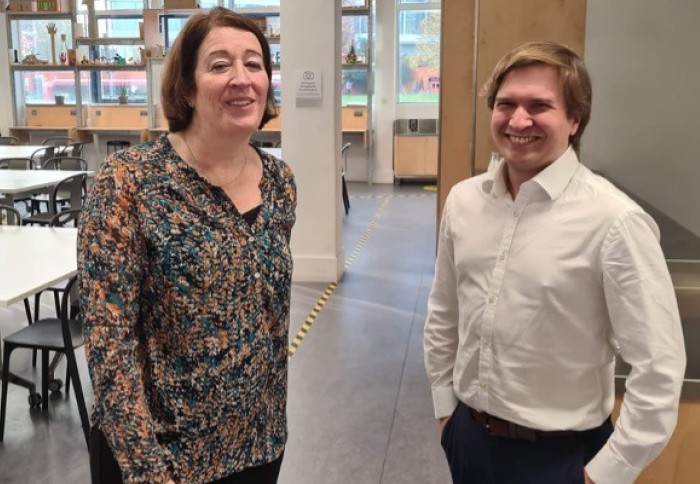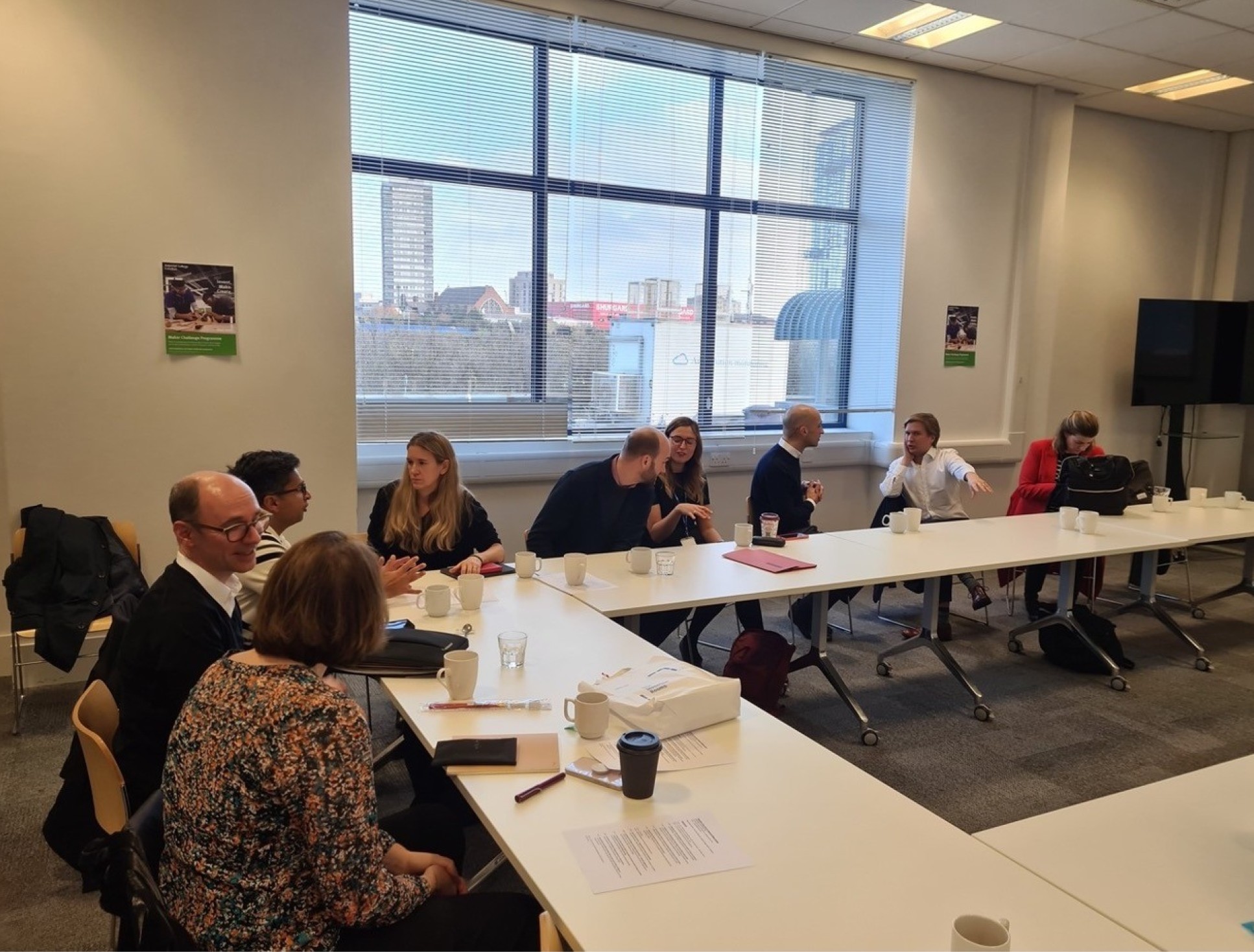Imperial welcomes innovative Rosetrees Trust charity

Imperial College London recently welcomed the Rosetrees Trust to celebrate the breadth of research taking place across the Faculty of Medicine.
A team from the Rosetrees Trust charity recently visited Imperial for a morning of presentations and discussion with a small group of early/mid-career researchers from across the Faculty of Medicine. Founded in 1987, and with a long history of supporting cutting-edge medical research, the charity is committed to discovering and funding the best medical ideas.
With its proudly entrepreneurial spirit, Rosetrees funds translational research in areas such as cancer, arthritis, heart disease, and diabetes and is noted for its distinctive approach in enabling innovative and early stage experimental research that may sit outside the schemes of other funders. The charity has generously awarded grants to researchers across the College and within the Faculty of Medicine.
"We want to encourage applications from researchers at every stage so that everyone can apply without bias." Ann Berger Chief Executive of Rosetrees Trust
Hosted at the College’s new White City Campus, the morning opened with an introduction from Rosetrees Chief Executive, Ann Berger: “As a private charity, we work with partners who are interested in really innovative scientific research - our aim is to find young talent who are a little bit different, who are thinking of new and exciting ideas and may want to gather new data together even if they don’t already have established grants."
"As a charity, we have developed over the years to fund a combination of seedcorn grants for 'out of the box' research ideas but, at the same time, we also support more progressed, comprehensive research – we want to encourage applications from researchers at every stage so that everyone can apply without bias. Unlike other charities, we fund in every disease, which makes it both rewarding and challenging to decide where our funding is allocated.”
A proactive funder
Touching on the charity’s ethos and interest in developing long term personal relationships with the researchers they fund, Ann Berger said: “We meet with all our researchers, understand their work and develop long term relationships. We are a small and passionate team and always open for further conversations from those who are interested. We like to be personally involved with the applications so it’s not just a faceless process. We take 600 applications a year so it is quite competitive, but we want to position ourselves as a proactive funder – I would say if you’re determined and really have the energy to push your research forward then we would like to hear from you.”

"Teams at Imperial have benefitted enormously from Rosetrees Trust funding in recent years. We are very grateful for the support" Professor Martin Wilkins Vice Dean (Research) Faculty of Medicine
Thanking the Rosetrees team, Professor Martin Wilkins, Faculty of Medicine Vice Dean (Research), said: “That was a wonderful overview of the charity and a great personal invitation to our researchers to reach out and find out more about the opportunities available to them."
"Teams at Imperial have benefitted enormously from Rosetrees Trust funding in recent years. We are very grateful for the support and look forward to continuing the relationship through events such as these.”
During the visit the Rosetrees team met with a group of early career fellows drawn from across the Faculty, hearing about research themes ranging from malaria to the chemistry of cancer to modelling the COVID-19 pandemic.
Presentations
- Modelling the COVID-19 pandemic: from policy response to long-term dynamics
Dr Lilith Whittles - Building a deep understanding of how adipose tissues shape human health
Dr Will Scott - Active hydrolases: drivers of colorectal inflammation and disease-related markers
Dr Rachael Barry - Targeting drug resistance mechanisms in blood cancers
Dr Nicholas Crump - The chemistry of cancer - opportunities for tests and treatments
Mr Stefan Antonowicz - Computational modelling in pulmonary hypertension – towards a digital twin
Dr Chloe Armour - Learning to do online well: how digital interactions can become a game changer to protect young people from suicide following discharge
Dr Lindsay Dewa - Unraveling the mechanism of hyperlactatemia in severe malaria
Athina Georgiadou - Individualised and efficient cardiac MRI scanning with artificial intelligence
Dr James Howard
Following from the presentations, researchers participated in an informal discussion over lunch and had the opportunity to speak with the Rosetrees team. Dr Rachael Barry, from the Department of Metabolism, Digestion and Reproduction, spoke of the importance of events where researchers can showcase new and developing research: “It’s great to hear more about the Rosetrees Trust as a charity and their personable and flexible approach. As an early career researcher, I really appreciate the opportunity to share what I’m working on and hear about other interdisciplinary research taking place across the faculty - it’s not always easy to build those networks at the beginning and so events like these really help and guide you in that process.”
Further information about the Rosetrees Trust and their funding opportunities can be found online via the Rosetrees Trust website.
Article text (excluding photos or graphics) © Imperial College London.
Photos and graphics subject to third party copyright used with permission or © Imperial College London.
Reporter
Elinor Pegler
Faculty of Engineering